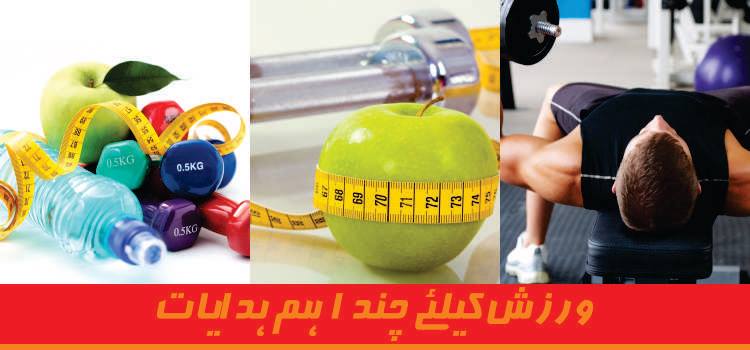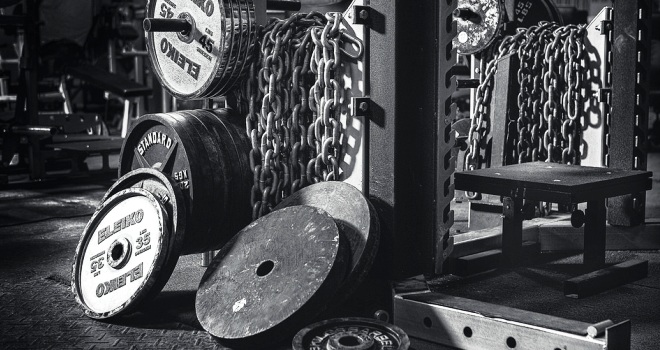Used properly and with enough variation, the push ups can be a powerful tool in your training arsenal.
The push ups is maybe the most ubiquitous and prescribed exercise in all of fitness-dom. They’re part of the fitness qualification testing for almost any military or law enforcement agency, athletes are tested on it in the pre-season, bodybuilders use push-ups as a finishing move on chest day. No matter where you go in this industry, push-up prowess is still considered a commodity. But as with any other exercise, the push-up can become stale. Here are nine ways you can reacquaint yourself with the torso-blasting benefits of this timeless bodyweight move.
1) Go for Max Reps
What tends to happen for many people – even if they’re doing them regularly – is that they perform the same amount of push-ups from workout to workout. Even if you’re doing multiple sets of, say, 20 reps, you are missing out on the benefits of pushing the envelope. This is inherently limiting and doesn’t increase performance. If you truly want to keep your push-up life exciting – you know, productive and stuff – you should try going for max reps every other workout. After a few warm-up sets – done well short of failure – get down and see how many push-ups you can do before reaching complete muscle failure. The next day soreness will remind you what the push-up is all about. Keep track of this number and look to add 2-3 reps every time you test yourself.
2) Max Reps in a Minute
This is the standard typically used by military and law enforcement for trainees. Some guys can get down and do push-ups all day (freaks). But how many can these guys do in 60 seconds? Every once in a while, take the time to set the clock, hit the deck and max out for 60 seconds. It may not sound like much time but your screaming triceps and pecs will think otherwise. This also has the benefit of driving a ton of blood to working muscles, giving you an insane pump that you thought was reserved for weight-based moves.
3) Try Tabata Push Ups
Think you’re a push-up pro? Humble yourself with a little Tabata training. By performing eight, 20-second segments of work – each followed by 10 seconds of rest – you will quickly fatigue all contributing muscle groups, up to and including your core. Fitter athletes will find that they can do 15 or more in the first segment but that number quickly drops off as you tire. If you can manage more than 10 reps on your eighth and final segment, it’s time to incorporate a new variety of push-up.
4) Speed Reps
Another problem with the push-up crowd is that it typically performs all the reps at the same speed. Since the push-up is a bodyweight-based exercise and most people develop proficiency fairly quickly, you can amp up the intensity and recruit more total muscle by simply varying the speed of the reps performed. Begin with a 15-rep set that consists of five explosive reps (<1 second) followed by five super-slow reps (7-10 seconds) and finish with five “normal” speed reps (1-2 seconds). As you progress, try adding one rep to each “gear” so that you’re completing 18 reps, 21 reps, and so on.
5) Use the 21 Method
Can you do 21 push-ups? (About 75% of you just answered “yes”) Then increase the difficulty and effectiveness by trying 21s. You may be familiar with 21s for curls, which has you doing seven reps through the top part of the move, seven through the bottom half, then seven full reps for a total of 21. You can apply this to the push-up as well. First, knock out seven push-ups through the bottom half of the push-up. To ensure that you’re getting the most out of this phase, allow your chest to rest on the floor for each rep, going so far as to briefly “lift” your hands off the floor as your chest touches down. Then, do seven through the top half of the rep, being sure to forcefully press through to full extension each time. Finally, do seven full repetitions – chest to floor each time.
6) Decline Push Ups
Standard push-ups are good but they are, well, standard. You can alter the muscular emphasis slightly by elevating your feet. The angle created between your torso and the floor simulates the incline bench press, bringing your upper pecs into play as the main movers. Your range of motion is somewhat limited by your head. One way to overcome this is to elevate your hands slightly. A three-inch step will work or, if you train at home, grab a pair of phone books to get the same effect. Using this version of the push-up, you can use any or all of the previous tips to increase intensity.
7) Get Explosive
Plyometric push-ups, where you create enough energy to catch some air at the top of each rep, are a great way to better engage the growth-prone fast-twitch muscle fibers of your chest, delts and triceps. As a bonus, plyo push-ups excite your nervous system, gearing your “push” muscles up for bigger, heavier movements like the bench press. Since your explosive energy stores are quickly depleted and because this is a power-based exercise, don’t count on doing high-volume sets. Aim for a few sets of 5-10 picture-perfect reps, where you aim to get greater elevation on each. To get the bench press benefits, try 3-5 sets of 4-5 reps with 1-2 minutes rest between sets, then head over and start pressing.
8) Add Weight
Yes, we have only referred to the push-up in terms of its benefits as a bodyweight exercise but it is still a potent muscle-builder. Ratcheting up the intensity of the technique is a great way to encourage more strength and muscle growth but you can also go old school and just add more weight. One way to do this is to simply have a training partner place a weight place across your upper back for your working sets. He or she should be vigilant the entire time to make sure that the weight doesn’t slip. Another way, although it is more costly, is to wear a weighted vest. The additional resistance will place a high demand on your muscles, leaving you more sore in your serratus and abs in addition to the usual suspects (pecs, deltoids, triceps).
9) Vary Your Grip Push Ups
Hands in. Hands out. These, plus the wrist-wrecking “diamond” push-up are about as nutty as it gets for most people in terms of push-up variety. But if you grab a pair of hex dumbbells or dumbbell blocks, you can literally train through any hand spacing and wrist angle you choose. Wrapping your hands around the dumbbells, you can use a neutral-grip for a push-up that better targets your triceps. And, if you’ve read the research here at M&F, you know that an underhand bench press can effectively train the upper chest. You can mimic (not duplicate) this effect by going underhand with the dumbbells for your push-ups. Go wide, set the dumbbells at a 45-degree angle, stagger your hands…the only limit is your training imagination.
Related posts:
 10 Training Tips for Gaining Lean Muscle
10 Training Tips for Gaining Lean Muscle
 3 Deep Breathing Exercises to Reduce Anxiety
3 Deep Breathing Exercises to Reduce Anxiety
 Top Reasons to Exercise in the Morning
Top Reasons to Exercise in the Morning
 Did You Stretch and Warm-Up Today?
Did You Stretch and Warm-Up Today?
 ورزش کیلئے چند اہم ہدایات
ورزش کیلئے چند اہم ہدایات
 Best Old School Exercises (with Photos)
Best Old School Exercises (with Photos)
 8 Best Foods for Total Body Strength
8 Best Foods for Total Body Strength
 Strategies to Prevent Heart Disease
Strategies to Prevent Heart Disease
 10 Health Benefits of Mangos
10 Health Benefits of Mangos
 Why Smoking is Bad for You?
Why Smoking is Bad for You?
 5 Breakfast Tips for Weight Loss
5 Breakfast Tips for Weight Loss
 5 Best Foods for Building Muscles
5 Best Foods for Building Muscles











